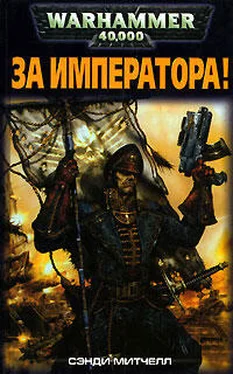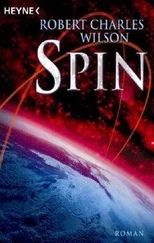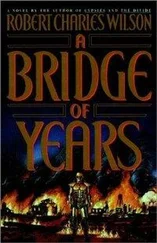A fire truck rolled out of a shed and screamed toward the gate.
We rolled up a series of ramps and stopped where the pier was level with the main deck of the Capetown Maru. Capetown Maru was an old flag-of-convenience freighter painted white and rust orange. A short steel gangway had been emplaced between the main deck and the pier, and the first few Minang were already scurrying across it.
Jala leaped out of the car. By the time I had Diane on the quay—on foot, leaning hard into me, the jute litter abandoned—Jala was already conducting a heated argument in English with the man at the head of the gangway: if not the ship's captain or pilot then someone with similar authority, a squat man with Sikh headgear and a grimly clenched jaw.
"It was agreed months ago," Jala was saying.
"—but this weather—"
"—in any weather—"
"—but without approval from the Port Authority—"
"—yes but there is no Port Authority—look!"
Jala meant the gesture to be rhetorical. But he was waving his hand at the fuel and gas bunkers near the main gate when one of the tanks exploded.
I didn't see it. The concussion pushed me into the concrete and I felt the heat of it on the back of my neck. The sound was huge but arrived like an afterthought. I rolled onto my back as soon as I could move, ears ringing. The Avigas, I thought. Or whatever else they stored here. Benzene. Kerosene. Fuel oil, even crude palm oil. The fire must have spread, or the unschooled police had fired their weapons in an unwise direction. I turned my head to look for Diane and found her beside me, looking back, more puzzled than frightened. I thought: I can't hear the rain. But mere was another, distinctly audible, more frightening sound: the ping of falling debris. Shards of metal, some burning. Ping, as they struck the concrete quay or the steel deck of the Capetown Maru.
"Heads down," Jala was shouting, his voice watery, submerged: "Heads down, everybody heads down!"
I tried to cover Diane's body with mine. Burning metal fell around us like hail or splashed into the dark water beyond the ship for a few interminable seconds. Then it simply stopped. Nothing fell except the rain, soft as the whisper of brushed cymbals.
We lifted ourselves up. Jala was already pushing bodies across the gangway, casting fearful glances back at the flames. "That might not be the last! Get on board, all of you, go on, go on!" He steered the villagers past the Capetown's crew, who were extinguishing deck fires and casting off lines.
Smoke blew toward us, obscuring the violence ashore. I helped Diane aboard. She winced at every step, and her wound had started leaking into her bandages. We were last up the gangway. A couple of sailors began to draw the aluminum structure in behind us, hands on the winches but eyes darting toward the pillar of fire back ashore.
Capetown Maru's engines thrummed under the deck. Jala saw me and came to take Diane's other arm. Diane registered his presence and said, "Are we safe?"
"Not until we clear the harbor."
Across the green-gray water horns and whistles sounded. Every mobile ship was making for open ocean. Jala looked back at the quay and stiffened. "Your luggage," he said.
It had been loaded onto one of the small cargo-haulers. Two battered hard shell cases full of paper and pharmaceuticals and digital memory. Still sitting there, abandoned.
"Run that gangway back," Jala said to the deck hands.
They blinked at him, uncertain of his authority. The first mate had left for the bridge. Jala puffed up his chest and said something fierce in a language I didn't recognize. The sailors shrugged and reeled the extendable walk back to the quay.
The ship's engines sounded a deeper note.
I ran across the gangway, corrugated aluminum ringing underfoot. Grabbed the cases. Took a last look back. Down at the landward end of the quay a detachment of a dozen or so uniformed New Reformasi began to run toward the Capetown Maru. "Cast off," Jala was shouting as if he owned the ship, "cast off, quickly now, quickly!"
The scaffolding began to retreat. I threw the luggage onboard and scrambled after it.
Made the deck before the ship began to move.
Then another Avigas tank erupted, and we were all thrown down by the concussion.
BY DREAMS SURROUNDED
The nightly battles between road pirates and the CHP made for difficult traveling at the best of times. The flicker made it worse. During a flicker episode any kind of unnecessary travel was officially discouraged, but that didn't stop people from trying to reach family and friends or in some cases simply getting in their cars to drive until they ran out of gas or time. I quick-packed a couple of suitcases with anything I didn't want to leave behind, including the archival records Jase had given me.
Tonight the Alvarado Freeway was clotted with traffic and I-8 wasn't moving much faster. I had plenty of time to reflect on the absurdity of what I was attempting to do.
Running to the rescue of another man's wife, a woman I had once cared about more than was really good for me. When I closed my eyes and tried to picture Diane Lawton there was no coherent image anymore, only a blurred montage of moments and gestures. Diane brushing back her hair with one hand and leaning into the coat of St. Augustine, her dog. Diane smuggling an Internet link to her brother in the tool shed where a lawn mower lay deconstructed on the floor. Diane reading Victorian poetry in a patch of willow shade, smiling at something in the text I hadn't understood: Summer ripens at all hours, or, The infant child is not aware…
Diane, whose subtlest looks and gestures had always implied that she loved me, at least tentatively, but who had always been restrained by forces I didn't understand: her father, Jason, the Spin. It was the Spin, I thought, that had bound us and separated us, locked us in adjoining but doorless rooms.
I was past El Centro when the radio reported "significant" police activity west of Yuma and traffic backed up for at least three miles at the state line. I decided not to risk the long delay and turned onto a local connector—it looked promising on the map—through empty desert north, meaning to pick up I-10 where it crossed the state border near Blythe.
The road was less crowded but still busy. The flicker made the world seem inverted, brighter above than below. Every so often an especially thick vein of light writhed from the northern to the southern horizon as if a fracture had opened in the Spin membrane, fragments of the hurried universe burning through.
I thought about the phone in my pocket, Diane's phone, the number Simon had called. I couldn't call back: I didn't have a return number for Diane and the ranch—if they were still on the ranch—was unlisted. I just wanted it to ring again. Wanted it and dreaded it.
The traffic was bad again where the road approached the state highway near Palo Verde. It was after midnight now and I was making maybe thirty miles per hour at best. I thought about sleeping. I needed sleep. Decided it might be better to sleep, to give up for the night and give the traffic time to clear. But I didn't want to sleep in the car. The only stationary cars I'd seen had been abandoned and looted, trunks agape like startled mouths.
South of a little town called Ripley I spotted a sun-faded and sand-blasted lodging sign, briefly visible in the headlights, and a two-lane, barely paved road exiting the highway. I took the turn. Five minutes later I was at a gated compound that was or once had been a motel, a strip of rooms two stories tall horseshoed around a swimming pool that looked empty under the flickering sky. I stepped out of the car and pushed the buzzer.
The gate was remote controlled, the kind you could roll back from a control panel safely distant, and it was equipped with a palm-sized video camera on a high pole. The camera swiveled to examine me as a speaker mounted at car-window height crackled to life. From somewhere, from the motel's bunker or lobby, I was able to hear a few bars of music. Not programmed music, just something playing in the background. Then a voice. Brusque, metallic, and unfriendly. "We're not taking guests tonight."
Читать дальше












